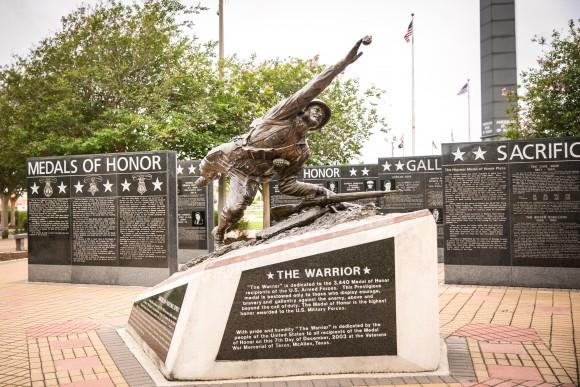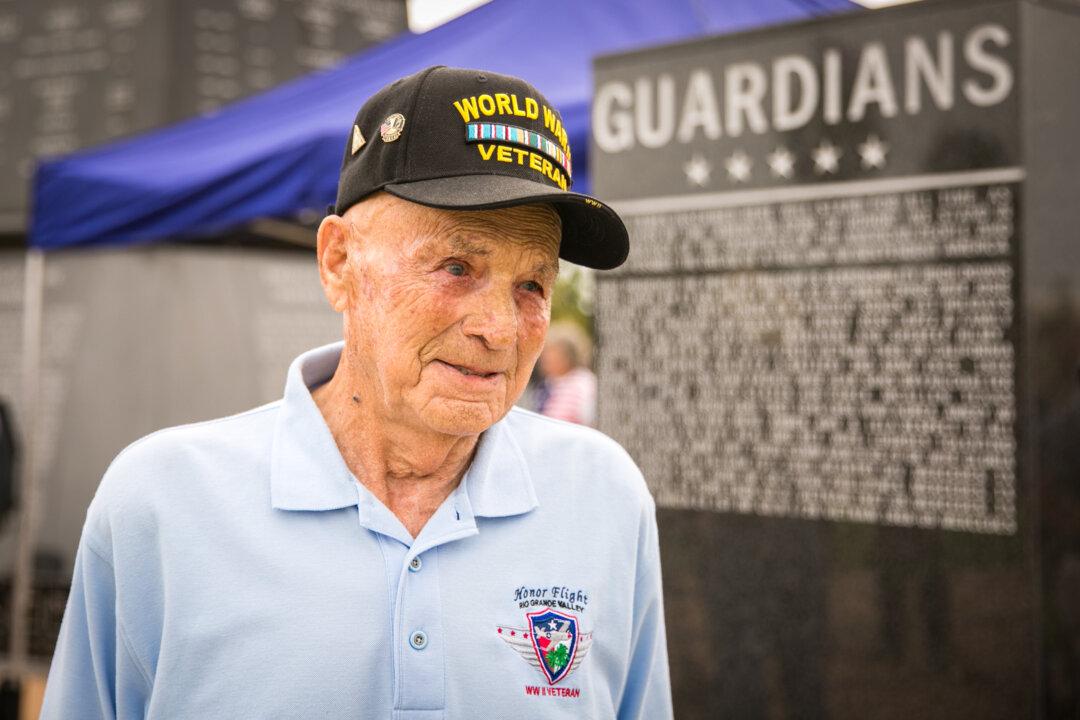MCALLEN, Texas—A cleansing thunderstorm raced over the Veterans War Memorial of Texas in McAllen the night before Memorial Day.
On the day, Lloyd Walker and Robert A. Watkins were among the handful of World War II veterans—their bodies slower, but their poignant memories of that time still sharp—who gathered at the memorial.
Walker, a tail gunner on a B-26 Marauder bomber, said he flew 62 missions during the war, from North Africa to Dijon, France. He was in the 12th Air Force, 17th bomb group, 432nd squadron.
“I’m not a hero,” he said on May 29. “The ones who didn’t come back are the heroes. And we must never forget that.”
Walker went on to share a vivid memory from December 1944 and the Battle of the Bulge.
“We were bombing ahead of [General George] Patton,” he said. “We were putting everything in the air that we could.”
Walker was with his crew in Dijon, France, readying for takeoff. His job on takeoff was to sit between the pilot and copilot and pull up the wheels when instructed.
The runway had undergone a fair bit of jerry-rigging.






